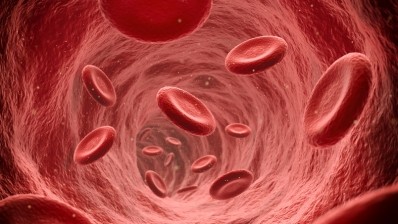Merck: COVID-19 oral antiviral drug reduces risk of death

Merck and Ridgeback Biotherapeutics have announced that investigational oral antiviral drug molnupiravir (MK-4482, EIDD-2801) has been shown to markedly reduce the risk of hospitalization or death in at-risk, non-hospitalized adults with mild-to-moderate COVID-19. According to the two companies, an interim analysis of its Phase III MOVe-OUT trial indicated that the drug molnupiravir reduced the risk of hospitalization or death by about 50%.
“More tools and treatments are urgently needed to fight the COVID-19 pandemic, which has become a leading cause of death and continues to profoundly affect patients, families, and societies and strain health care systems all around the world,” said Robert Davis, Merck president and CEO. “With these compelling results, we are optimistic that molnupiravir can become an important medicine as part of the global effort to fight the pandemic and will add to Merck’s unique legacy of bringing forward breakthroughs in infectious diseases when they are needed most.”
Davis added that the company will work with regulatory agencies on its applications, with the goal of molnupiravir of caregivers and within reach of patients “as quickly as possible.”
According to Merck, only about 7.3% of patients receiving molnupiravir were either hospitalized or died through Day 29 following randomization (28/385); by contrast, only 14.1% of placebo-treated patients (53/377) were hospitalized or dead. Through Day 29, no deaths were reported in patients who received molnupiravir, as compared to 8 deaths in patients who received placebo.
At the recommendation of an independent Data Monitoring Committee and in consultation with the US Food and Drug Administration (FDA), recruitment is being halted early, due to the positive results. Merck reports that it will submit an application for emergency use authorization (EUA) as soon as is feasible, based on the findings; further, it plans to submit marketing applications to other regulatory bodies worldwide.
“With the virus continuing to circulate widely, and because therapeutic options currently available are infused and/or require access to a healthcare facility, antiviral treatments that can be taken at home to keep people with COVID-19 out of the hospital are critically needed,” said Wendy Holman, CEO of Ridgeback Biotherapeutics. “We are very encouraged by the results from the interim analysis and hope molnupiravir if authorized for use, can make a profound impact in controlling the pandemic; our partnership with Merck is critical to ensuring rapid global access if this medicine is approved, and we appreciate the collaborative effort to reach this important stage of development.”
The planned interim analysis evaluated data from 775 patients initially enrolled in the Phase III MOVe-OUT trial on or before August 5 of this year. When the decision to halt recruitment based on positive results landed, the trial was approaching full recruitment of the Phase III sample size of 1,550 patients, with more than 90% of the intended sample size already enrolled.
In anticipation of the results from MOVe-OUT, Merck has been producing molnupiravir at risk. The pharma company expects to produce 10m courses of treatment by the end of 2021, following up with additional doses in 2022.
Molnupiravir is an investigational, oral form of a ribonucleoside analog that reportedly has been shown to inhibit replication of SARS-CoV-2, the causative agent of COVID-19. Molnupiravir has been shown to be active in several preclinical models of SARS-CoV-2, including for prophylaxis, treatment, and prevention of transmission; preclinical and clinical data have shown the drug to be effective against the most common variants.
The drug was invented at Drug Innovations at Emory (DRIVE), LLC, a not-for-profit biotechnology company owned by Emory University. It is being developed by Merck in collaboration with Ridgeback Biotherapeutics.























